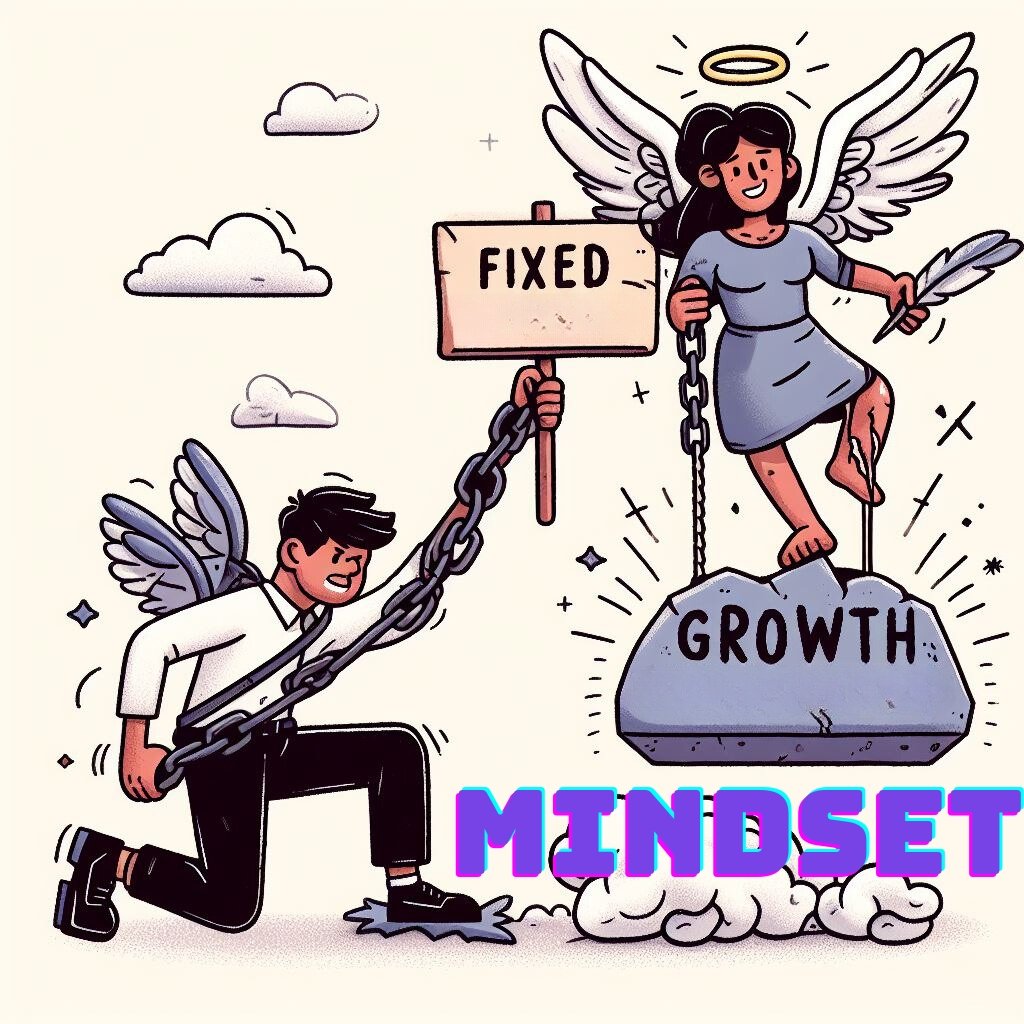
I hope you’re all doing well. In our last blog, we talked about self-care. It’s clear that self-care is different for each person, depending on their physical, mental, and social well-being. In this article, we’ll focus on some important factors that play a crucial role in good self-care. We’ll explore various methods and practices to help you choose what works best for you, considering your unique situation. It’s possible that you might not find some aspects of self-care interesting or useful. That’s okay; you may already be managing them well, or you might not be familiar with them.

A journey of self-discovery is like setting sail on a ship through the uncharted waters of our own minds. It’s a quest to understand our approach to life, how we perceive the world, and how we react to the situations that come our way. You might be thinking, “What’s so groundbreaking about this?” Well, the secret of life lies right there – “you are what you think.”
I’m sure you’ve heard that phrase before, but let’s dive deeper into its meaning and why it’s incredibly crucial for your success. Understanding yourself is more vital than comprehending others or society.

The simple truth is that you are the captain of your ship, and you have the power to steer your life in the direction you choose. You can control how you respond to the challenges life tosses your way. This wisdom has been passed down through the ages by our ancestors, often concealed in stories meant to teach us life’s fundamental secrets.
You might recall a story, perhaps from your early school days, one that sticks with you like an old friend. It’s a tale that underscores the power of changing your mindset. It’s a reminder that even the smallest shift in how we perceive a situation can lead to an entirely different outcome.
Changing your perspective can transform your world. It’s a reminder that life is not just a sequence of events; it’s how you perceive and react to them that truly matters. When you embark on this journey of self-discovery and shift your mindset, you unlock new horizons of possibility and potential. Your story, much like the ones our ancestors shared, becomes a narrative of growth, resilience, and personal empowerment.
A mindset is like the compass of your thoughts and beliefs that guide your life’s journey. It’s the way you perceive the world, react to challenges, and approach opportunities. Your mindset can be the driving force behind your emotions and actions. Now, let’s dive into the emotional and fascinating world of mindsets, where there are two key types: the Fixed Mindset and the Growth Mindset.
Fixed Mindset: Imagine a world where you believe your abilities and intelligence are set in stone, like an unchangeable sculpture. In a fixed mindset, challenges can be terrifying. If you think you can’t change, why would you dare to try? Failures are seen as reflections of your limitations, and they can be emotionally tough to handle. This mindset can keep you stuck in your comfort zone, avoiding risks to protect your self-esteem.

Growth Mindset: Picture a garden that can bloom endlessly. In this mindset, challenges are seen as opportunities for growth and learning. You believe that you can develop your abilities through dedication and hard work. Failures are seen as stepping stones to learn from them to build success. This mindset fosters resilience, and it’s emotionally liberating. It encourages you to embrace challenges and face them head-on.
Your mindset can shape your emotional experiences and influence your life’s path. So, which mindset are you nurturing? Remember, you have the power to cultivate a growth mindset, allowing your emotional growth to flourish like a vibrant garden.

Some characteristics and behaviors associated with a fixed mindset:
Belief in Fixed Abilities: People with a fixed mindset tend to believe that their abilities and intelligence are innate, static traits. They believe, “I have born with certain qualities, there’s nothing I can do to change it.”
Avoidance of Challenges: Those with a fixed mindset often shy away from challenging situations or tasks because they fear failure. They may prefer to stick with what they know they’re good at to protect their self-esteem.
Fear of Failure: Failure is seen as a reflection of their inherent abilities, and this can be a source of anxiety for individuals with a fixed mindset. They may avoid taking risks or try new things.
Defensive Response to Feedback: Feedback, especially constructive criticism, can be difficult for people with a fixed mindset to accept. They may become defensive or dismiss feedback that challenges their self-image.
Limited Persistence: When faced with setbacks or obstacles, those with a fixed mindset may give up more easily, believing that if they can’t excel right away, it’s not worth pursuing.
Comparative Thinking: They often engage in a lot of social comparison, measuring their worth based on how they stack up against others. They may feel unsecure by others’ success.
Stagnation: Individuals with a fixed mindset may not see the value in continuous learning and personal growth, leading to a stagnation in their development.
It’s important to remember that having a fixed mindset is not a permanent state, and it can be changed with awareness and effort. Recognizing that you have a fixed mindset is the first step toward adopting a more growth-oriented perspective if that’s your goal. Cultivating a growth mindset involves believing in your capacity to develop your abilities through dedication, learning, and resilience.

Certainly, here are some characteristics and behaviors associated with a growth mindset:
Belief in Development: People with a growth mindset believe that their abilities and intelligence can be developed and improved through effort, learning, and perseverance. They see their potential as something that can be cultivated.
Embracing Challenges: Those with a growth mindset view challenges and obstacles as opportunities for learning and growth. They are more likely to take on new and difficult tasks, even if it means making mistakes along the way.
Resilience in the Face of Failure: Failure is not seen as a reflection of their abilities but as a natural part of the learning process. Individuals with a growth mindset bounce back from setbacks and use failure as a stepping stone to future success.
Openness to Feedback: They welcome feedback, especially constructive criticism, as a means to improve. Feedback is not seen as a personal attack but as valuable information for growth.
Persistence: People with a growth mindset are willing to put in the effort and time required to achieve their goals. They understand that mastery and success often come from consistent practice and learning.
View Challenges as Opportunities: Challenges are not daunting but exciting to those with a growth mindset. They see challenges as a chance to stretch their abilities and expand their horizons.
Intrinsic Motivation: They are often intrinsically motivated to learn and improve because they find satisfaction and joy in the process of growth, rather than solely seeking external validation or rewards.
Positive Comparisons: Instead of feeling threatened by others’ success, individuals with a growth mindset see others’ achievements as a source of inspiration and learning. They believe that they can also achieve similar success through effort and dedication.
Cultivating a growth mindset involves shifting your beliefs and attitudes toward learning and personal development. It’s about recognizing that your abilities can be developed with effort, and embracing challenges as opportunities to learn and improve. Adopting a growth mindset can lead to increased resilience, motivation, and a greater capacity for personal and professional growth.
To identify your mindset, reflect on how you typically respond to challenges, failure, feedback, and personal growth opportunities. Pay attention to your beliefs and attitudes about your abilities. Do you tend to shy away from challenges and give up easily, or do you embrace challenges and view them as opportunities to learn and improve?
Keep in mind that your mindset is not fixed; it can change over time with awareness and effort. If you find that you have a fixed mindset but would like to develop a growth mindset, you can start by challenging your beliefs and working on developing a more positive and adaptable attitude towards personal growth and development.
Identifying a person’s mindset involves understanding their underlying beliefs and attitudes.
Here are some approaches to help identify a person’s mindset:
Observation: Pay attention to a person’s behaviours, reactions, and attitudes in various situations. Notice how they respond to challenges, failures, and feedback. Are they open to growth and change, or do they tend to avoid challenges and become defensive when confronted with feedback?
Engage in Conversations: Engaging in open and reflective conversations with the individual can provide valuable insights. Ask open-ended questions about their beliefs, goals, and experiences. Encourage them to share their thoughts on learning, effort, and their approach to challenges.
Use Psychometric Assessments: There are various psychometric assessments and surveys designed to measure mindset, such as the Mindset Assessment developed by Carol Dweck. These tools can provide structured insights into a person’s mindset based on their responses.
Feedback and Self-Assessment: Encourage the person to reflect on their own beliefs and attitudes. They can use self-assessment tools, journals, or reflective exercises to gain a better understanding of their mindset.
Behavioural Analysis: Examine a person’s past and current behaviours. Do they consistently engage in activities that reflect a particular mindset? For example, someone with a growth mindset might seek out challenges and learning opportunities.
Peer Feedback: Sometimes, people close to an individual, such as friends, family, or colleagues, may have insights into their mindset. They may have observed consistent patterns in the person’s behaviour and can provide valuable feedback.
Incorporate Mindset in Interviews: If you are in a hiring or leadership position, you can incorporate questions related to mindset during interviews or performance evaluations. Ask candidates or employees about their experiences with challenges and their approach to personal and professional growth.
Review Personal Goals and Aspirations: Discuss the individual’s goals and aspirations. People with different mindsets often have distinct ways of setting and pursuing goals. A person with a fixed mindset may have goals that focus on proving their abilities, while someone with a growth mindset may prioritize learning and development.
Workshops and Training: Encourage participation in workshops or training programs that focus on mindset development. These experiences can help individuals become more self-aware and may lead to insights about their own mindset.
Remember that an individual’s mindset may not fit neatly into one category (fixed or growth) and can be context-dependent. People can have a mixture of mindsets in different areas of their lives. Additionally, mindsets can change over time with self-awareness and deliberate effort. Therefore, it’s important to approach the identification of a person’s mindset with sensitivity and a non-judgmental attitude, promoting a culture of continuous learning and growth.
I’m confident that now you can figure out your mindset by looking at its characteristics and by using some of the methods mentioned earlier. You can start your journey with a growth mindset. Even in our story, we explained the importance of mindset in a simple way so that anyone can understand and apply it.
Awareness..

Awareness is the state of being conscious and mindful of your surroundings, It’s the ability to perceive, know, and understand what is happening around you or within you. In simpler terms, awareness is the quality of being mindful and attentive to your surroundings, your thoughts, your feelings, and the events occurring in your life. It involves being in tune with your own thoughts and emotions and having a clear understanding of the world around you. Awareness can vary in scope, from self-awareness (knowing your own thoughts and feelings) to broader awareness of the environment and people around you. It’s a fundamental aspect of human consciousness and is essential for making informed decisions, understanding oneself, and engaging effectively in the world.
The benefits of awareness are numerous and can positively impact someone’s life in several ways:
Self-Understanding: Awareness helps you understand your own thoughts, feelings, and behaviours. This self-awareness is crucial for personal growth, as it allows you to identify your strengths, weaknesses, and areas for improvement.
Emotional Regulation: Being aware of your emotions enables you to manage them more effectively. You can recognize when you’re feeling stressed, anxious, or upset and take steps to address these emotions in a healthy way.
Improved Decision-Making: Awareness allows you to make more informed decisions. By understanding the factors at play in a given situation, you can make choices that align with your values and goals.
Better Relationships: When you’re aware of your own emotions and can empathize with others’ feelings, you can build stronger and more empathetic relationships. Communication and understanding are enhanced.
Reduced Stress: Being aware of stressors in your life and how they affect you can help you take steps to manage and reduce stress. This, in turn, can lead to better overall well-being.
Enhanced Learning: Awareness is essential for learning and personal growth. It allows you to be open to new experiences, learn from your mistakes, and adapt to new information.
Mindfulness: Practicing mindfulness, a form of awareness, has been shown to reduce symptoms of anxiety, depression, and improve overall mental well-being. It promotes a sense of presence at the moment.
Increased Resilience: Awareness can help you develop resilience in the face of adversity. When you’re aware of your own strengths and challenges, you can better navigate difficult situations.
Goal Achievement: Setting and achieving goals becomes more feasible when you’re aware of your priorities, progress, and obstacles. Plan it to stay motivated.
We should always feel grateful to our ancestors. They were wise and caring, thinking about the problems we might face. They created simple stories that even children could understand. These stories hold the most valuable life lessons, and they sneak into our hearts without us even realizing it. It’s the magic of Indian tales passed down through generations.
As a child, you enjoy the stories, just like we all did. But as you grow up and face life’s challenges, those very stories become like a secret guidebook, offering solutions and wisdom. The same stories that once entertained you now reveal hidden secrets about life’s greatest situations and challenges.
You don’t need to spend years meditating to uncover the truths of life. Just delve into our holy books and the old stories of our heritage, and you’ll find answers to everything. Our ancestors possessed knowledge from the tiniest atoms to the vastness of the galaxies in the universe. When we embrace our roots, our lives flourish like mighty trees, reaching for the sky
I’m certain, that you’re aware, I’m about to share another story. You might have heard it before , but I’m confident it will give you a fresh outlook. This new perspective will make you reconsider things and give you fresh insights that can enrich your life.
